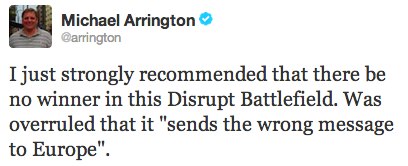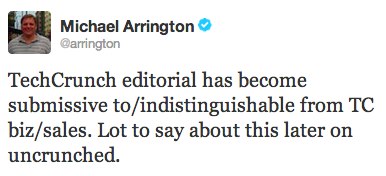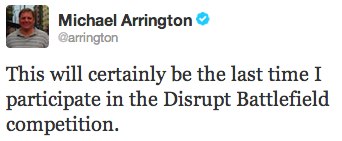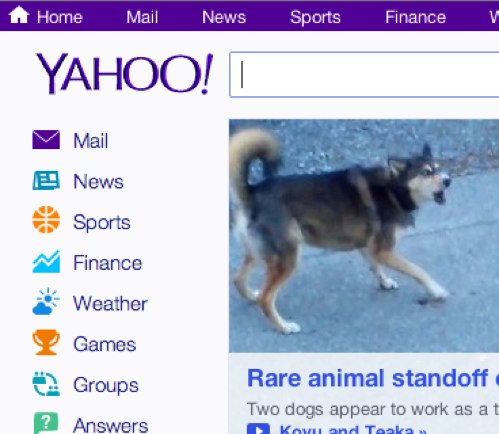When Jessica Lessin’s The Information launched a month ago I was an enthusiastic supporter, paying the $400 yearly subscription fee right away to get access to quality tech content.
I remember blinking when I read about her joking to tech execs at the launch party that they could pay $10,000 and kill a story, thinking that it really wasn’t all that funny.
It was clearly a joke, but it wasn’t the kind of joke I would have ever made when running TechCrunch. People fawn all over tech reporters in the hope of getting good coverage or being able to squash bad coverage. A lot of reporters eat it up. Joking about being able to pay to kill a story isn’t just a joke, it’s a reminder about power relationships that often lead to bad reporting.
Anyway, I put that out of my mind almost before I finished reading it.
But now something has happened that really leaves a bad taste in my mouth. They have apparently altered a quote in a story about Y Combinator’s Paul Graham. In addition to altering the quote, they left out all the context of his statement, which was an answer to a question that wasn’t printed in the final post.
Graham’s blog post on the issue is here.
A quote from an “interview” with me (I’ll explain the scare quotes in a minute) went viral on the Internet recently:
We can’t make women look at the world through hacker eyes and start Facebook because they haven’t been hacking for the past 10 years.
When I saw this myself I wasn’t sure what I was even supposed to be saying. That women aren’t hackers? That they can’t be taught to be hackers? Either one seems ridiculous.
The mystery was cleared up when I got a copy of the raw transcript. Big chunks of the original conversation have been edited out, including a word from within that sentence that completely changes its meaning. What I actually said was:
We can’t make these women look at the world through hacker eyes and start Facebook because they haven’t been hacking for the past 10 years.
I.e. I’m not making a statement about women in general. I’m talking about a specific subset of them. So which women am I saying haven’t been hacking for the past 10 years? This will seem anticlimactic, but the ones who aren’t programmers.
Lessin has so far stood by her the story, saying that their editing and excerpting were for clarity.
This is, in my opinion, one of the worst sins in reporting.
And really, three sins were committed. The first was changing a quote. You just can’t do that, ever. The second was omitting contextual information which would have made the statement intelligible. And the third was taking a background discussion about Paul’s partner Jessica Livingston and turning it into an “interview” in the first place.
It’s extremely frustrating to have your words rearranged, edited and taken out of context to make it seem like you’re saying something you aren’t. It has happened to me repeatedly, to the point where I rarely even consider doing interviews any more. More often I’ll make statements in writing, but only under the condition that my entire answer be printed, not just an excerpt.
When reporters do this they’re spreading disinformation and being unethical. The result is that people don’t want to talk about anything controversial, because they know there’s a chance that they’ll be made to look like fools.
Yesterday I said I will cancel my subscription to The Information if what Paul says is true. Unless Jessica has anything further to say on this in her defense, I’ll be doing that shortly.
Update: Jessica writes about this here. My response (and I think I’m done here).




 Twice a year
Twice a year 

